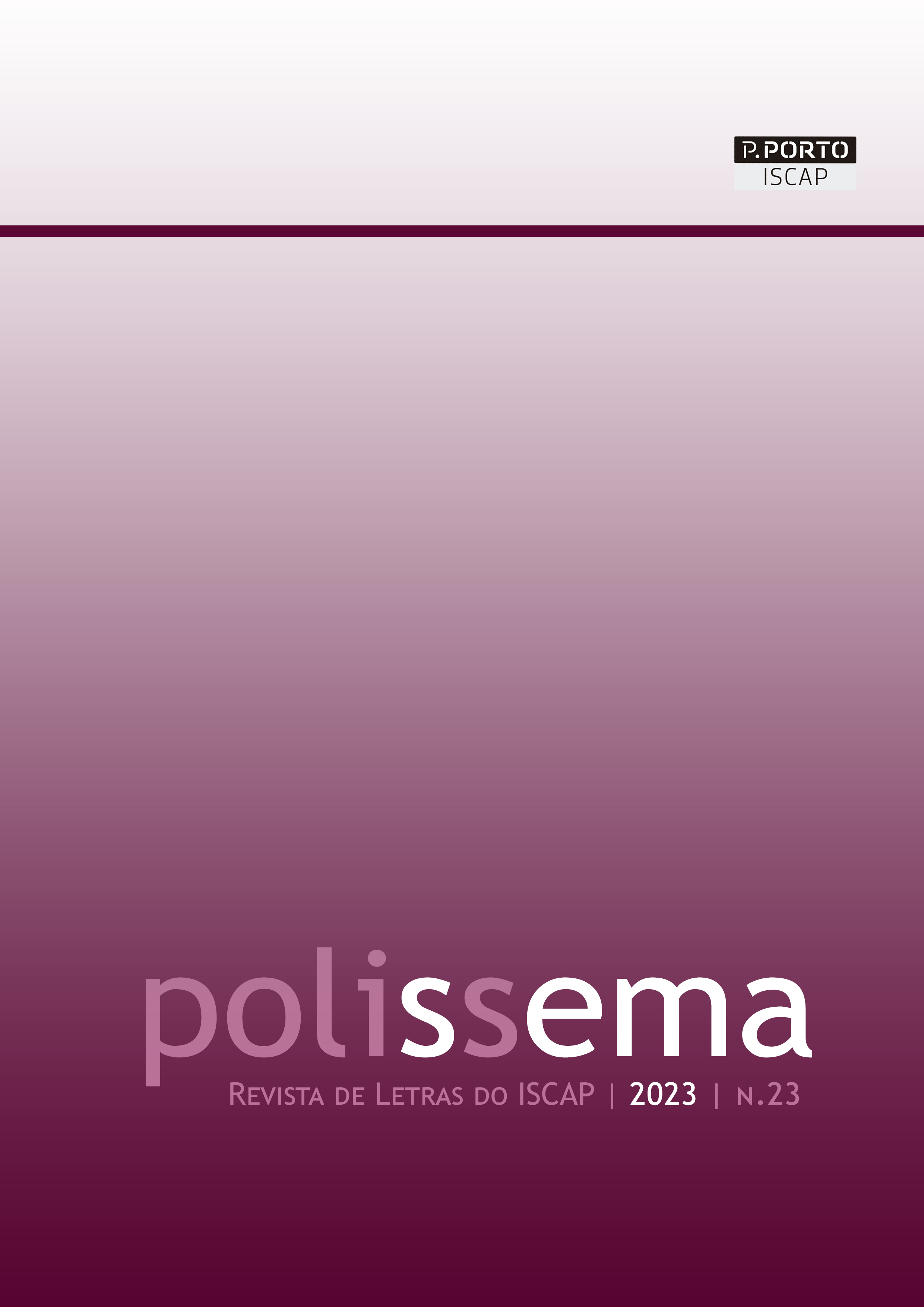ECOS CAÓTICOS (1975) AND INTERSEMIOTIC TRANSLATION: NOTES ON THE CONTACT POINTS BETWEEN THE POETICS OF JAIRO FERREIRA AND SOUSÂNDRADE
DOI:
https://doi.org/10.34630/polissema.v1i23.5002Keywords:
Intersemiotic translation, Synchrony, Ambulation, Marginal cinema, VanguardAbstract
The contemporary artistic production, interested in the language oxygenation, seems to streamline the formal interstices of the works, abandoning the appeal to the specific, in a turn close to the synesthesia and hybridization. In this sense, this work focused on the comparative analysis between two works located in different media: poem and cinema. The short film entitled “Ecos caóticos” (1975), by director Jairo Ferreira, is responsible for approaching, synchronously, informational modules contained in Sousândrade's poetics in his long poem O Guesa, hence the approach taken in this study. To this end, intersemiotic translation was required (Plaza, 1987), a critical approach that considers the interaction of works in disparate semiotic systems. In addition, the reading that was developed on the poem and on the short film were guided by a common point: the theme of the journey. The issue of the avant-garde in the ethical and aesthetic conception of the creators was also problematized, in line with the inventor category, elaborated by the American critic and poet Ezra Pound (1990) – in the case of the filmmaker, such elaboration interacts with the particularization of his poetics in the core of marginal cinema produced in Brazil. In dealing with the content of the poem, especially the translation by Ferreira, areas other than theory/literary criticism were articulated to broaden the discussion, in a way that anthropology and urban studies sustained some questions regarding the representation of the amerindian in both artistic expressions and in the relationship of the characters with the space.
References
Bernardet, J. (2012). Cinema marginal?. In E. Puppo (Org.), Cinema marginal brasileiro: filmes produzidos nos anos 1960 e 1970 (pp. 12-16). Heco Produções Ltda.
Campos, A. de, & Campos, H. de. (1982). ReVisão de Sousândrade. (2ª ed.). Nova Fronteira.
Campos, H. de. (2001). A peregrinação transamericana do Guesa de Sousândrade. Revista USP, (50), 221-231. http://surl.li/frzxf.
Cernicchiaro, A. C. (2016). Sousândrade-Guesa e a cidade-inferno. Terra Roxa E Outras Terras: Revista De Estudos Literários, 12, 89–99. http://surl.li/fsrlg.
Cuccagna, C. (2004). A visão do ameríndio na obra de Sousândrade. Wilma Katinsky Barreto de Souza (Trad.). HUCITEC.
Danowsky, D., & De Castro, V.. (2017). Há mundo por vir? Ensaio sobre os medos e os fins. (2ª ed.). Cultura e barbárie: Instituto Socioambiental.
Ferreira, J. (2016). Cinema de invenção. (3ª.ed.). azougue editorial.
Lévi-Strauss, C. (1988). Tristes trópicos. Editorial Paidós.
Lima, C. (1962). O campo visual de uma experiência antecipadora: Sousândrade. Estudos universitários, (2), 1-15. http://surl.li/frzwz.
Lobo, L. (1986). Épica e modernidade em Sousândrade. Editora da Universidade de São Paulo.
Mello, C. A. de. (2011). An-danças Urbanas em Xiao Wu e Na Cidade de Sylvia. Revista Eco-Pós, 14(1). http://surl.li/frzws.
Mendonça, A., & Fonseca, D. (2020). Caminhabilidade em questão: práticas, políticas e cotidiano. VI Encontro da Associação Nacional de Pesquisa e Pós-graduação em Arquitetura e Urbanismo (pp. 1-13). ENANPARQ. http://surl.li/frzwk.
Plaza, J. (1987). Tradução intersemiótica. Perspectiva.
Rocha, M. L. (2003). O "caso" Sousândrade na história literária brasileira. Revista USP, (56), 213-220. https://encurtador.com.br/qs025.
Sousândrade, J. de. (2009). O Guesa. Demônio Negro.
Souza, A. (2008). A nação Guesa de Sousândrade: uma narrativa em viagem. AML/EDUEMA/FSADU.
Downloads
Published
How to Cite
Issue
Section
License
Copyright (c) 2023 POLISSEMA – ISCAP Journal of Letters

This work is licensed under a Creative Commons Attribution-NonCommercial-NoDerivatives 4.0 International License.


